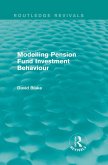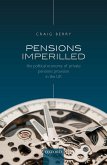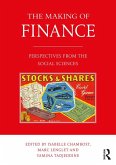This is an open access title available under the terms of a CC BY-NC-ND 4.0 International licence. It is free to read at Oxford Scholarship Online and offered as a free PDF download from OUP and selected open access locations. Since its green shoots first emerged around 50 years ago, acceptance of environmental, social, and governance (ESG) considerations in institutional investing-especially at pension funds-has evolved with distinct shifts in investor preferences. This Pension Research Council volume traces these shifts and their implications, leading up to the present day. The book notes that investors have diverse reasons for devoting attention to ESG criteria when deciding where to invest their money. Some had religious motives, such as Quakers who focused on values; this approach can offer some risk mitigation. Nevertheless, studies that look at whether divestment actually changes companies' behaviors show that this rarely occurs. Accordingly, this book offers a variety of distinct viewpoints from a variety of countries, on whether, how, and when ESG criteria should, and should not, drive pension fund investments. The authors also find that policymakers should consider fund consolidation in private sector retirement systems, along with whether service-provider incentives could be better be aligned with sustainability incentives. For instance, boosting transparency in these markets would help generate better-informed policies, while providing beneficiaries with information relevant to their savings choices.
Dieser Download kann aus rechtlichen Gründen nur mit Rechnungsadresse in A, B, BG, CY, CZ, D, DK, EW, E, FIN, F, GR, HR, H, IRL, I, LT, L, LR, M, NL, PL, P, R, S, SLO, SK ausgeliefert werden.









